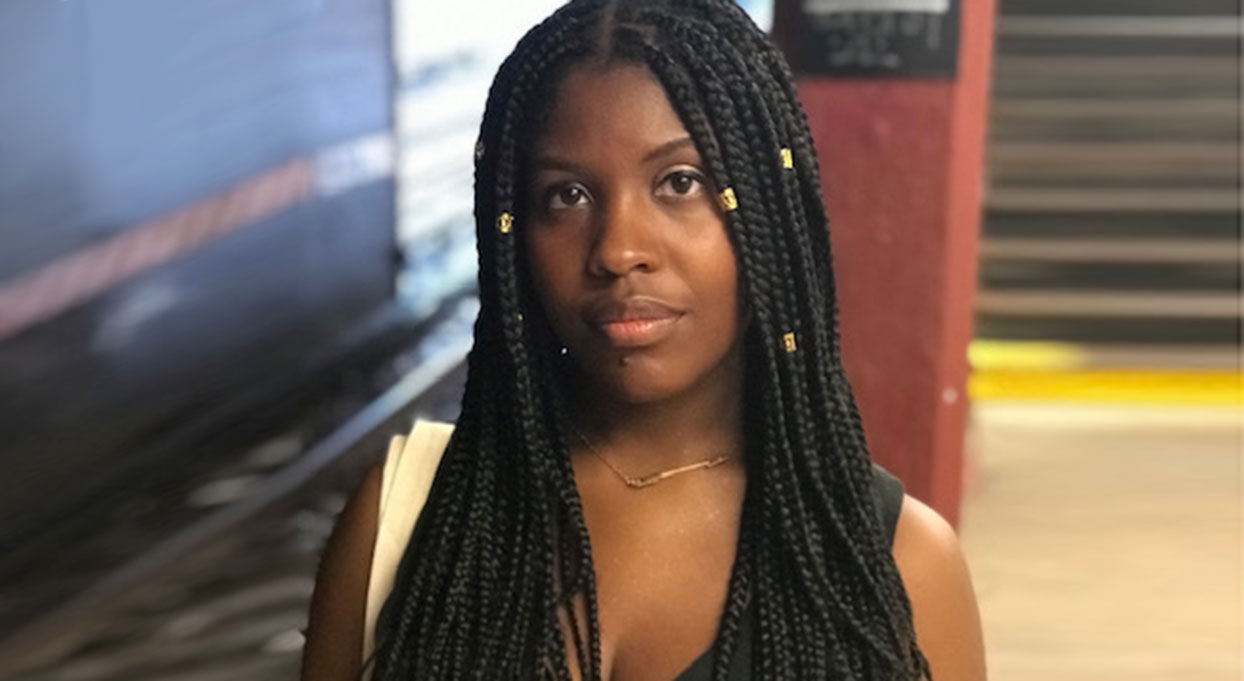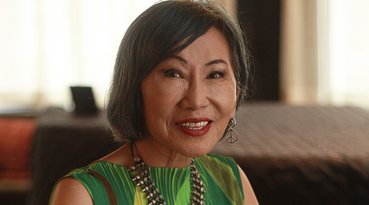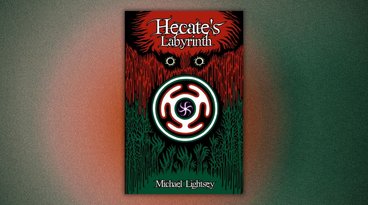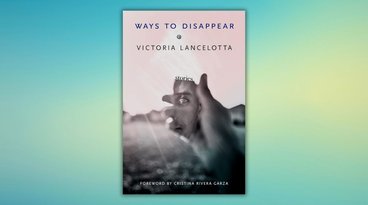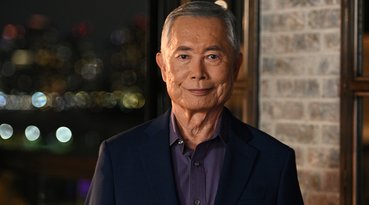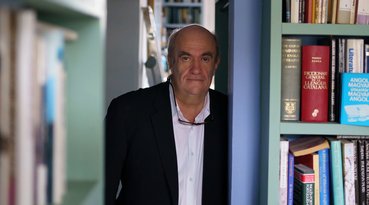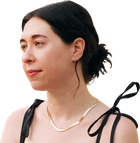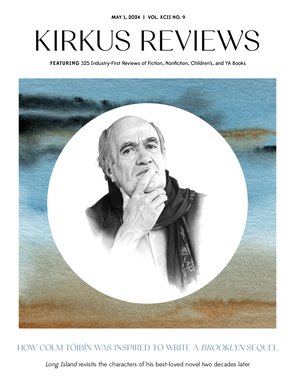Raven Leilani is a painter as well as a writer, and her riveting first novel, Luster (Farrar, Straus and Giroux, Aug. 4), introduces a 23-year-old artist named Edie who loses her job in publishing and winds up moving in with her older lover, Eric; his wife, Rebecca, an autopsist; and their adopted preteen daughter, Akila, at their home in suburban New Jersey. Edie and Akila are Black, Eric and Rebecca are White; Rebecca and Edie fascinate each other; Edie and Eric have sex but can’t decide if they like each other; and Akila needs a friend. As our starred review says, “The dynamics among the four of them keep shifting, an unstable ballet of race, sex, and power. Leilani’s characters act in ways that often defy explanation, and that is part of what makes them so alive and so mesmerizing.” Leilani recently spoke about the novel from her apartment in Brooklyn, where she’s sheltering in place; the conversation has been edited for length and clarity.
There’s been a discussion in the past few years about whether fictional characters, particularly women, should be likable. It’s hard to ask an author about that because what if she says, “You mean you didn’t like my characters?”
It’s funny, we're deep in that unlikable women moment, and I love it. It's overdue. I actually prefer that my characters—or any characters I’m watching on TV or reading about—I prefer they be unlikable because I think unlikable is often shorthand for getting to see the nitty-gritty interior of a woman’s mind. You get to see past the curation, and so it’s not necessarily that they’re unlikable—they’re honest. And that’s the freedom that I really, really wanted for Edie, for Rebecca, and for Akila.
There was a scene when Edie was still working at the publishing company when she tried to summon the spirit of the “grateful diversity hire,” to present this front where she’s just nice and grateful and happy, and she doesn't want to do that.
That’s right. Because you’re privy to Edie’s mind, and also privy to the way the outside world perceives her, you have the advantage of seeing her calculation, which is the regular way of being for a lot of Black women, a constant guard and calculation and curation depending on the room you’re in. But she still understands her privilege, she understands the people that came before her have fought harder. She is thankful that she caught a break to be employed at all. But you can't discount the sort of distortion that happens when you have to play those games, especially if you’re an artist and your art depends on being able to put an honest depiction down on the canvas or on the page.
When Edie moves into Eric and Rebecca’s house, she’s amazed at the abundance of food and towels and all kinds of comfort. In addition to having to support herself, she’s been trying to make art, and painting materials are very expensive.
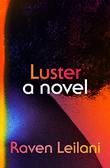 To make art you need means, whether it’s money or time. A lot of this book is dedicated to the work Edie does—the work at the publisher, the work with a delivery service. And there’s a reason that takes up so much space. I have some personal experience with the adversarial and also symbiotic relationship between art and survival, with the concrete things you need to do to earn a living that make it so that you have less time to create but also, ideally, give you the resources to create. For a young Black woman who’s navigating racism and sexism and her own hunger and id and fallibility, it’s almost an impossible situation, to have the means to create art.
To make art you need means, whether it’s money or time. A lot of this book is dedicated to the work Edie does—the work at the publisher, the work with a delivery service. And there’s a reason that takes up so much space. I have some personal experience with the adversarial and also symbiotic relationship between art and survival, with the concrete things you need to do to earn a living that make it so that you have less time to create but also, ideally, give you the resources to create. For a young Black woman who’s navigating racism and sexism and her own hunger and id and fallibility, it’s almost an impossible situation, to have the means to create art.
It’s unusual to read a book that spends so much time in the workplace, and you really capture office life. Have you worked in publishing yourself?
I did work in trade publishing and scientific publishing. I was working at Macmillan, actually, before they acquired my book, so I’ve seen both sides of the equation. It was important for me to talk about that component of living. Even though I wouldn't say this is autofiction, I always, always had a full-time job in college and during my MFA. Writing was the thing that happened after I clocked out—I’d come home and then I’d write until it was time to go to bed. And I wanted to talk about that reality, the kind of faith you have to sustain because it's a private thing you do outside of work.
The scenes of Rebecca working in the morgue are so vivid. How did you research those?
My mom was a medical examiner. When I was in high school, she went back to college for mortuary science—she started as a seamstress, so it was a perfect transition. I went to see her work the year before I started college, and I remember this feeling of “Oh my God, what if I can’t handle this?” But I went in there and watched her work, and she was so careful and tender and meticulous, and the body is miraculous. It really affected me. So I drew that from my life directly, but also because there’s so much art in the book, it was a really easy tie-in, because the book is extremely bodily.
Akila is such a great character. I enjoyed watching her bond with Edie by playing video games and making costumes for Comic-Con.
I pulled a lot from my own childhood and from some of my own preoccupations for the things Akila loves. I wanted to be able to talk about a union between two Black women who are at very different points in their lives but also need each other. But I also wanted to talk about geekery—like I needed to write about Comic-Con [laughs]. And so in a book that is a lot about loneliness, a lot about isolation and what we do to cope with that, it was important to me that there would be points of joy—and with Akila, that joy was her fandom.
What writers have influenced you?
I started in poetry, so the thing that feeds me, is most nourishing even now, is poetry. I really, really love Morgan Parker’s stuff, and she has a poem I would use as almost the thesis of what I was writing during my MFA. She says—and I might get this wrong—I do what I want because I could die at any time. I don’t mean YOLO, I mean the precarity of living as a Black woman. It means that you go for it, and that ethos was really important for me, to just put it all on the page. Then there’s Morrison, of course, and Nabokov, the big ones who just, on a sentence level, there’s beauty and desire and it’s not spare. I love abundance. As far as peers, I love Ottessa Moshfegh. I think that she has a beautiful meanness about her prose. I love Brit Bennett. I feel like we’re very close on the spectrum. She writes so tenderly about Black womanhood.
Laurie Muchnick is the fiction editor.



